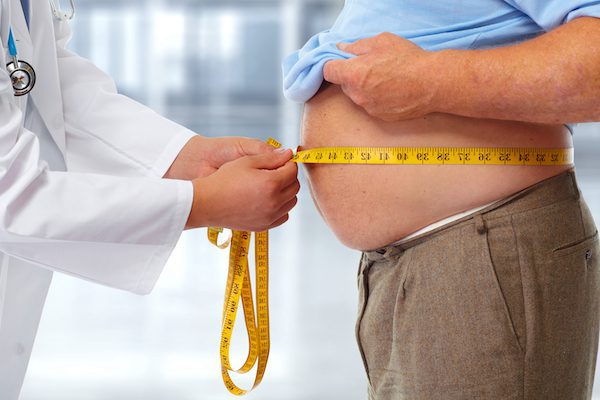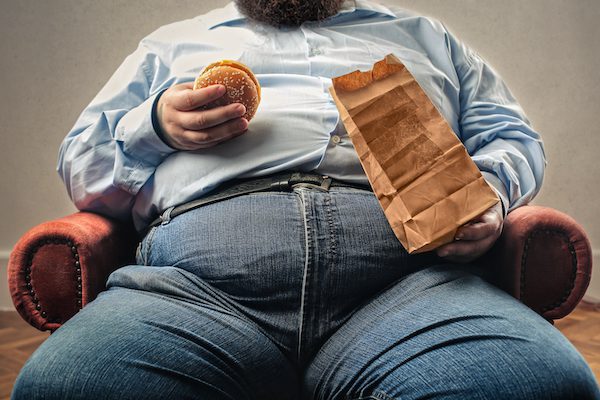It’s easy to determine your body weight and jump on a scale. But what percentage of your total weight is fat? What percentage is lean muscle and bone? One way to find out is using our body fat percentage calculator and a few simple measurements. The calculator uses specific body measurements and equations developed at the Naval Health Research Center to determine the body fat levels of Navy personnel.
Why is calculating your body fat percentage significant?
Obesity is the leading preventable cause of death worldwide and claims over 360,000 deaths yearly in the U.S. alone. According to the CDC, 40% of the U.S. population is obese. Obesity and excess body fat handle obstructive sleep apnea and contribute to cardiovascular disease, stroke, cancer, and diabetes. Once you know your body fat percentages, you can design programs to add lean muscle to reduce those fat stores.
How do you use a body fat percentage calculator?
Use a tape measure to determine your waist, hip, and neck measurements. Input these measurements with your gender and height; our calculator will estimate your body fat percentage and lean muscle mass.
To determine your body fat weight, subtract your lean mass from your total body weight. For example, a 52-year-old male who is 65 inches tall and weighs 180 pounds, has a 37-inch waist, 18-inch neck, and 40-inch hips, has a body fat percentage of 19.8%, and has a lean mass of 144 pounds.
- Use a tape measure that doesn’t stretch (try fiberglass).
- Round your measurements up or down to the nearest inch.
- Round your weight to the nearest pound.

What is body fat?
There are many kinds of fat in your body. Certain kinds of fat may harm your health and lead to illness. Others are helpful to your health. White, brown, and beige fat cells are the most common. You may store them as subcutaneous, visceral, or vital fat. Each kind of fat has a distinct function. Others lead to life-threatening illnesses while maintaining a healthy metabolism and hormone balance.
Disadvantages of high body fat percentage
Difficulties Breathing
Many obese individuals have trouble breathing. Excess fat limits the rib cage’s expansion, leaving less room for the diaphragm to migrate lower than it should. The lungs offer additional storage space for part of the fat, decreasing oxygen exchange. Some people huff and puff as they go about their everyday routines. Others must take a break after ascending a small flight of steps. Obesity impacts life quality in a variety of ways, including impaired breathing.
Depleted Energy
When you’re fat-depleted, you don’t have any reserve energy reserves, and your body can’t function at its best because it’s running out of energy. We also related low body fat levels to slow heart rates and decreased thyroid hormone synthesis, possibly contributing to tiredness.

Difficulties Walking
Most overweight individuals are hesitant walkers. Imagine having to lug a bag of potatoes around all day! Excess weight exacerbates the disintegration of hips, knees, and feet. Obesity, according to some specialists, is one cause of osteoarthritis since excess lipids contribute to cartilage degradation in the joints. Walking is a liberating and healthy activity; if you can’t do it, you’re reducing the quality of your life.
Slow Healer
Even if you can exercise due to your ultra-lean physique, you will probably not get much out of it. Also, when your body fat percentage is too low, your glycogen levels, or stored carbs in your muscles and liver, are too low. That glycogen is crucial for your body’s recovery after exercise.
Heart Problems
Stoppage, blockage, congestion, and obstruction are all symptoms of obesity. Extra fat strains the heart, lungs, and other internal organs and robs you of energy and quality of life in various ways. The risk is substantial even at the milder end of the obese spectrum. Overweight individuals are more likely to suffer from heart disease and stroke. In addition, every day that you carry excess weight, you risk developing a new illness.
Stay Hungry
The better pizza sounds, the more you live on chicken breast, vegetables, and air. Also, dieting to reduce body fat reduces the amount of leptin, a hormone generated by fat cells, in the bloodstream. Leptin receptors in the hypothalamus detect this decrease and boost appetite, causing you to be constantly hungry.
Poor Health
A life spent gasping, coughing, and waiting in physicians’ offices is not a good life. Sure, blood pressure medicines, cholesterol drugs, stent insertions, pacemaker implantations, organ transplants, joint replacements, and other contemporary medical procedures may prolong a person’s life for a remarkable amount of time, but that isn’t the entire story. Obesity affects people’s lives in various ways, causing dissatisfaction and despair, frequently leading to compensatory eating, exacerbating the issue.

Back Pain
People who are overweight are more likely to suffer from persistent back pain. Also, extra weight puts more strain on the back than is necessary for fluid, pain-free mobility. Therefore, losing weight and strengthening stomach muscles are always recommended by chiropractors and doctors who treat back problems.
Purchasing Clothing
Although some shops have introduced product lines for big men and women, finding clothes that look good on them isn’t easy. However, buying oversized clothing as your waistline grows is a loser’s game. It’s better to acknowledge that you can no longer fit into your clothes and concentrate on returning to your previous size.
Chronic Illness
Extremely low body fat and calorie consumption are linked to increased cortisol levels, which suppress the immune system and increase your chances of getting a bacterial infection or catching a cold or flu virus.
Social Issues
Individuals prefer to befriend people they are happy to introduce to their other friends, no matter how shallow it may be. This may change when more of us join the stout ranks, but making friends when you’re big is tough for now.
The Last Word on Body Fat Percentage
We store fat in adipose tissue as subcutaneous fat (deep below your skin) or visceral fat (inside your abdominal cavity). While a small amount of fat is healthy, excess stored fat can have profound health implications. Calculating and tracking your body fat percentage allows you to target and reduce your stored fat as you build lean muscle.

